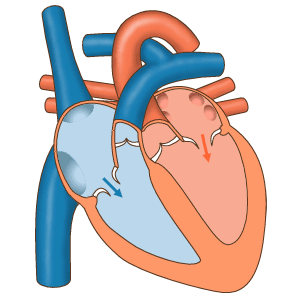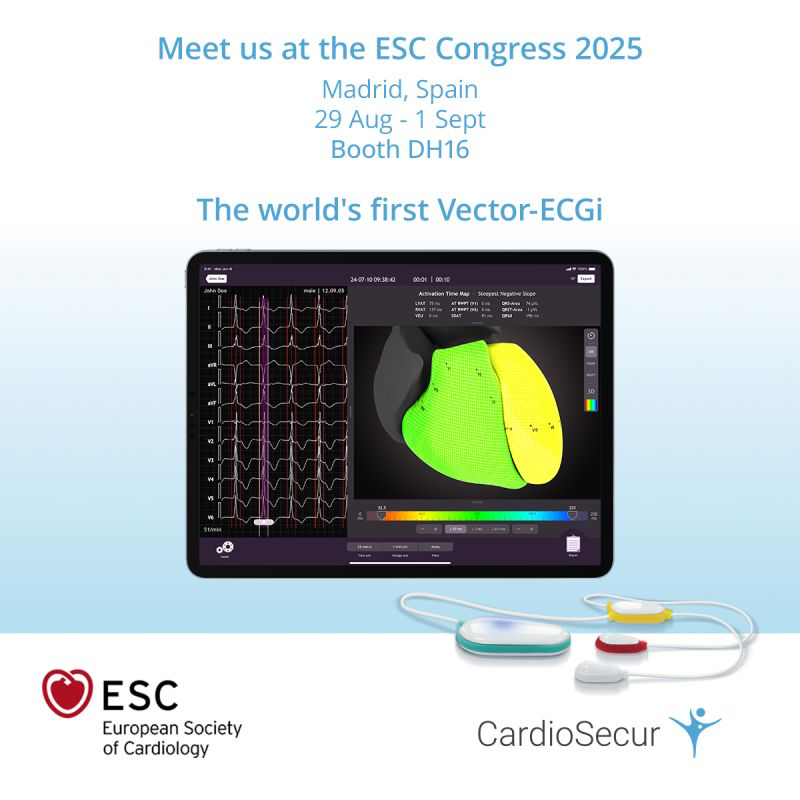What are extrasystoles (palpitations)?
What are the symptoms of extrasystoles?
Extrasystoles: What treatment options are there?
What are extrasystoles?
Extrasystoles are additional heartbeats that occur outside the physiological heart rhythm and can cause unpleasant symptoms. Extrasystoles are also referred to as skipped heartbeats, “heart hiccups“ or palpitations, and are medically regarded as a form of cardiac arrhythmia.
In most cases, the additional heartbeats can hardly be felt, or only very faintly. It is the next, regular, heartbeat, which occurs later and stronger, that is perceived as the skipped heartbeat. The person affected may then worry about possible heart disease.

How do extrasystoles occur?
Extrasystoles can occur in both healthy people and cardiac patients, and often go unnoticed. The underlying cause is a disturbance of the cardiac rhythm that occurs outside the sinus node. However, there is no disturbance of the electric transduction system, through which the electric impulse for our heartbeat is usually transmitted from the sinus node to the AV node. Rather, the additional impulse is transmitted via the heart musculature.
Most extrasystoles are harmless, and often perceived as “missed heartbeats”. However, they can be a sign of heart disease, so you should always consult a doctor if you are experiencing any of the typical symptoms (see below), to rule out, or diagnose, a heart condition.
Depending on the exact site of origin in the heart, they are classified as supraventricular extrasystoles (SVES), which are generated above the level of the ventricle, or ventricular extrasystoles (VES), which are generated in the ventricle.
Extrasystoles can occur in isolation, in pairs or in so-called "short salvos".
What are the symptoms of extrasystoles?
Typical symptoms of extrasystoles causing a disturbance in the regular heartbeat include:
- The heartbeat being felt as irregular and stronger than usual, or as too hard, with a feeling of the heart beating in the throat
- Feeling of trepidation, anxiety or panic; sweating
- Chest pain
- Feeling of respiratory distress
- Stomach upset or increased urge to urinate
- Headache or nausea
Always consult a doctor or cardiologist if these symptoms occur in connection with a pre-existing underlying heart condition.
What causes extrasystoles?
Among the causes for extrasystoles in healthy individuals are:
- Fatigue
- Stress
- Physical and mental strains
- Potassium- or magnesium deficiency
- Heavy consumption of alcohol, nicotine or coffee
Extrasystoles can, however, also be a symptom of heart disease, such as:
- Coronary heart disease
- Heart muscle inflammation
- Heart valve defect
- Cardiac insufficiency
- Hyperthyroidism
Extrasystoles: What treatment options are there?
In healthy individuals, there is usually no need to treat extrasystoles. Often, it can be enough to simply make some lifestyle changes, such as reducing alcohol consumption and cigarettes, alleviating stress, doing more sports and getting enough sleep. In addition, heart palpitations can sometimes be counteracted by taking mineral supplements, though you should always consult your doctor before taking any nutritional supplements.
In cases in which heart disease can be safely ruled out, extrasystoles can also be treated with homeopathic remedies.
Treatment is necessary if the symptoms are very pronounced or if the extrasystoles are being caused by an already known heart condition.
Extrasystoles can be treated with medication, e.g. by taking mineral supplements or stabilizing the heart rhythm with beta-blockers.If the prescribed medication does not help or this form of treatment is not available due to possible side effects, catheter ablation is another treatment option.




